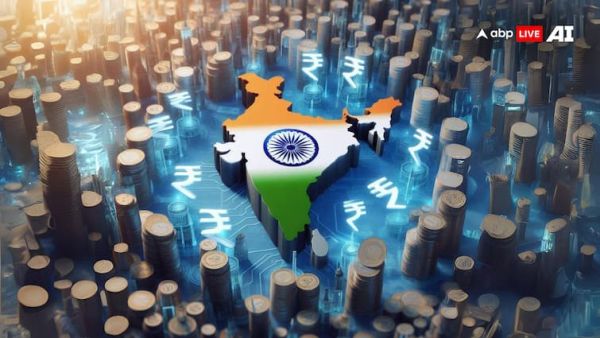
India’s economy is expected to grow at 6.4 per cent in both FY26 and FY27, according to the latest World Economic Outlook (WEO) released by the International Monetary Fund (IMF) on Tuesday. The upgraded projections reflect a comparatively stable global environment, improved financial conditions, and expectations of softer external shocks than previously estimated.
The IMF revised its growth forecast for India by 20 basis points for FY26 and 10 basis points for FY27, pointing to factors such as favourable trade dynamics and easing fiscal constraints in major economies.
In the broader global context, the IMF expects worldwide GDP growth to touch 3.0 per cent in 2025 and 3.1 per cent in 2026. This marks an improvement over earlier estimates, driven by anticipated tariff adjustments, expansionary fiscal measures in key economies, and improved access to financing.
“Global growth is projected at 3.0 per cent for 2025 and 3.1 per cent in 2026, an upward revision from the April 2025 World Economic Outlook. This reflects front-loading ahead of tariffs, lower effective tariff rates, better financial conditions, and fiscal expansion in some major jurisdictions,” the IMF stated in its report.
However, the agency noted that inflation in the United States may remain above the target level, even as global headline inflation trends downward. Overall global inflation is forecast to decline to 4.2 per cent in 2025 and 3.6 per cent in 2026, broadly consistent with previous projections.
Emerging Economies To See Moderate Growth
Emerging market and developing economies are projected to grow at 4.1 per cent in 2025 and 4.0 per cent in 2026. Despite this steady trajectory, the IMF cautioned that significant downside risks remain, including the potential for higher trade barriers, persistent geopolitical instability, and a lack of progress in tariff negotiations.
“Risks to the outlook are tilted to the downside, as they were in the April 2025 WEO. A rebound in effective tariff rates could lead to weaker growth. Elevated uncertainty could start weighing more heavily on activity, also as deadlines for additional tariffs expire without progress on substantial, permanent agreements,” the IMF warned.
Structural Reforms And Policy Stability Urged
The multilateral agency also warned that prolonged fiscal deficits or spikes in global risk aversion could push up long-term interest rates, tightening financial conditions further. Any deterioration in global trade relations or new supply chain disruptions, it noted, could lead to rising commodity prices and heightened market volatility.
“Combined with fragmentation concerns, this could reignite volatility in financial markets. On the upside, global growth could be lifted if trade negotiations lead to a predictable framework and to a decline in tariffs. Policies need to bring confidence, predictability, and sustainability by calming tensions, preserving price and financial stability, restoring fiscal buffers, and implementing much-needed structural reforms,” the IMF concluded.
-
Hindu Homes Burned, Looted In Bangladesh Over Social Media Post On Prophet Mohammad

-
Gautam Gambhir had an ugly conversation with the Oval Pitch curator due to…

-
Who is Prithviraj Sukumaran’s wife? Was once a famous journalist, gave up her career for marriage, now works as a…, name is…

-
Aamir Khan Announces All Future Films Under His Banner Will Be Released On YouTube Post Theatrical Run

-
Delhi Weather Today: Clouds will remain throughout the day, light rain is also expected in many parts
